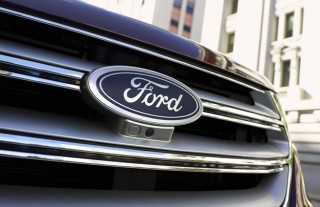
As part of a four-part investigative series on the potentially dangerous influence of industry-backed research on the public, on February 16th, VICE News and the Center for Public Integrity published a story on the many steps that Ford Motors took to try and curb the lawsuits they were losing in response to auto mechanics who had developed mesothelioma as a result of being exposed to asbestos in brakes. Specifically, the article focused on the relationship Ford fostered with a consulting firm called Exponent, paying them over $18 million (and a similar firm–Cardno ChemRisk–$21 million) to fund journal articles and expert testimony to try and refute the mesothelioma links of brake mechanics.
As University experts have pointed out, while the partnerships have led to numerous publications, they have not, in fact, produced any actual new science. The controversy has even led judges to point out that the argument against the science linking mesothelioma and brakes was never even questioned before these cases involving Exponent witnesses. Many would argue that, instead of shedding scientifically-supported doubt on the mesothelioma links, it has simply increased the costs and burdens on both the mechanics suffering and the courts.
The Established Mesothelioma Links: Asbestos in Brakes
Ford’s plan was no easy task, as a majority of scientists, academics, and entities such as the World Health Organization have all maintained that there is no safe exposure level for asbestos and that its presence (specifically, that of chrysotile) in brakes can, in fact, cause mesothelioma. Specifically, as friction wears down brake linings and pads, any mechanic who goes in to replace them gets exposed to a brake drum filled with asbestos dust. Mechanics then use compressed air to clean it out, and this generates the asbestos clouds, which can then give rise to developing mesothelioma years later. Mechanics could also be exposed to asbestos via sanding brakes or cleaning up areas where they worked on brakes.
Yet, in spite of this widely accepted science, it is difficult to find an abstract on asbestos brakes co-authored by Exponent or Cardno ChemRisk scientists that actually reports on an elevated risk of mesothelioma amongst mechanics. Most reach a conclusion that there is no link or elevated risk. Researchers have pointed out that, unfortunately, whoever is willing to fund more studies ends up having more studies in their favor published overall. However, of the articles written by foreign scientists who are not involved in the litigation, most-all showed an association and/or high asbestos exposure amongst people who work with brakes.
In fact, records show that as early as 1971, Ford was researching alternatives to using asbestos in brake linings due to the brake dust unleashed by mechanics, indicating that there was cause for concern, and they knew about the issue. Ultimately, Ford rejected these alternatives because they were deemed to be too costly.
Mesothelioma Attorneys
If you or a loved one has been diagnosed with this deadly and aggressive disease after working as a mechanic, our mesothelioma attorneys can help you secure the compensation you deserve. Contact Harrell & Nowak today to learn how you and your loved ones can obtain justice in the wake of a diagnosis.
